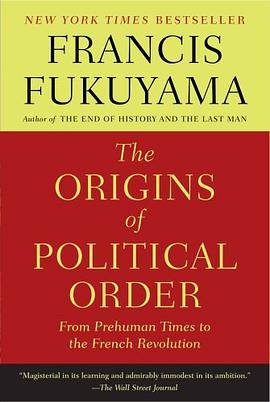The Origins of Political Order
内容简介
Virtually all human societies were once organized tribally, yet over time most developed new political institutions which included a central state that could keep the peace and uniform laws that applied to all citizens. Some went on to create governments that were accountable to their constituents. We take these institutions for granted, but they are absent or are unable to perform in many of today’s developing countries—with often disastrous consequences for the rest of the world.
Francis Fukuyama, author of the bestselling The End of History and the Last Man and one of our most important political thinkers, provides a sweeping account of how today’s basic political institutions developed. The first of a major two-volume work, The Origins of Political Order begins with politics among our primate ancestors and follows the story through the emergence of tribal societies, the growth of the first modern state in China, the beginning of the rule of law in India and the Middle East, and the development of political accountability in Europe up until the eve of the French Revolution.
Drawing on a vast body of knowledge—history, evolutionary biology, archaeology, and economics—Fukuyama has produced a brilliant, provocative work that offers fresh insights on the origins of democratic societies and raises essential questions about the nature of politics and its discontents.
......(更多)
作者简介
弗朗西斯•福山(Francis Fukuyama):日裔美籍学者,哈佛大学政治学博士,现任美国斯坦福大学弗里曼•斯伯格里国际问题研究所奥利弗•诺梅里尼高级研究员,此前曾任教于约翰•霍普金斯大学尼兹高等国际研究院、乔治•梅森大学公共政策学院,曾任美国国务院政策企划局副局长、兰德公司研究员。著有《历史的终结与最后的人》、《信任》、《十字路口上的美国》、《政治秩序的起源》等。现居加利福尼亚。
......(更多)
目录
......(更多)
读书文摘
However, neither rule of law nor political accountability exists in contemporary China any more than they did in dynastic China.
......(更多)






